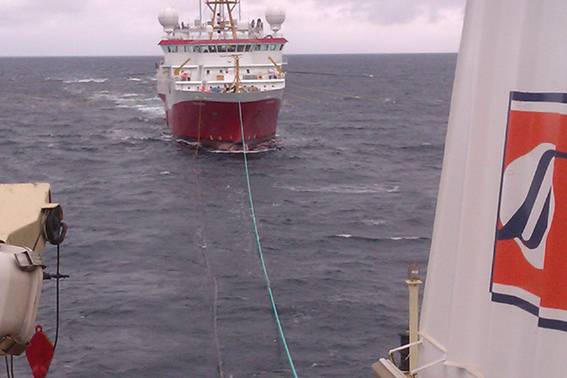
What do Colombia and Norway have in common? They both led the world in hydrocarbon discoveries in the third quarter of 2019.
That GlobalData finding signals but one of many currents shaping an oil-and-gas industry that’s vital to keeping the largest nations on earth clothed, fed and competitive. Yet, a Monday in Norway also reveals a competition bureau ruling that’ll keep hotel-rig owners from merging; the surging stock of a nearly bankrupt offshore service fleet owner, and the “tax lift” a favorable court ruling can bring.
Unlike industries where change is sporadic and incremental, there’s always something big going on in oil and gas. Maybe because company employee counts can top tens of thousands; or because the stakes are nothing short of life and death for the developing world, or maybe because policy and politics often do an unexpected dance around tech.
Discovery
It’s just Monday, but that GlobalData data report suggests Norway leads the world in the third quarter with six oil and gas discoveries while owning the better part of Europe’s eight discoveries. The world saw 21 conventional oil and gas discoveries and 15 conventional gas discoveries in the three-month span, according to GlobalData.
A steady rate of discovery coupled with life-extension projects and major turnkey assignments have also pushed contractor Kvaerner to new highs in the third quarter. The company — behind major engineering, procurement and construction bids the world over — reported it was on track for yearly revenues of NOK 10 billion ($100 million) after notching earnings of NOK 2.57 billion ($280 million) in the quarter, up about NOK 850 million ($92.3 million) over this time in 2018.
Rig competition
The Norwegian Competition Authority on Monday also did its best for the oil and gas industry by disallowing the merger of Floatel International and Stavanger-based Prosafe. Together, they already dominate the Norwegian floating accommodation market, and their merger, it was deemed, would effectively have eliminated competition for this unique service on Oslo’s side of the North Sea meridian.
“We fear that buyers of accommodation services on the Norwegian continental shelf would have few or no competing suppliers in future tenders if the merger was allowed to proceed, says Director General Lars Sørgard,” a statement said. The rig owners say that a merger is needed to keep up services in a shrunken market.
The competition bureau says its own market research suggested “there will be a demand for offshore accommodation services in the coming years”. Prosafe’s management, on the other hand, told Norwegian DN that competition for offshore housing services has stiffened, with some operators using offshore service vessels or oil platforms as accommodation, a billet seen as inferior, especially for long modifications, re-development and decommissioning jobs where good sleep equates with crew safety.
Electromagnetic
Monday also revealed survey outfit, Electromagnetic Geoservices, or EMGS, had earned a new multi-client contract that’ll see their oil company client license “certain data from the company's existing EM multi-client library in Norway and settle future potential uplift obligations towards the company for certain multi-client data already licensed by the customer. The contract furthermore includes a number of user licenses to the company's proprietary EMU and SBLwiz software, plus prepayment for consulting services.
“EMGS is pleased to announce that the company has signed a $8 million multi-client contract with an undisclosed customer,” a statement says. Yet, while the contract win was a big boost to the company’s fourth quarter, so, too was the financial impact of news from Brazil.
There, EMGS — which wields tech that finds hydrocarbon zones with pinprick accuracy — learned that a judge had ruled in its favor in a tax case. Like the Monopoly boardgame, the company receives back the $3.7 million that it had in a judicial escrow account.
Finally, DOF Subsea — it’s management group in nail-biting limbo for being at the mercy of bondholders, and one in particular — learned that the fate of its painstakingly assembled fleet of offshore construction vessels was no longer in doubt. Finance was secured, and delighted investors pushed the company share price to over 36%.
I tell you, this industry is “happening”, even on a Monday.